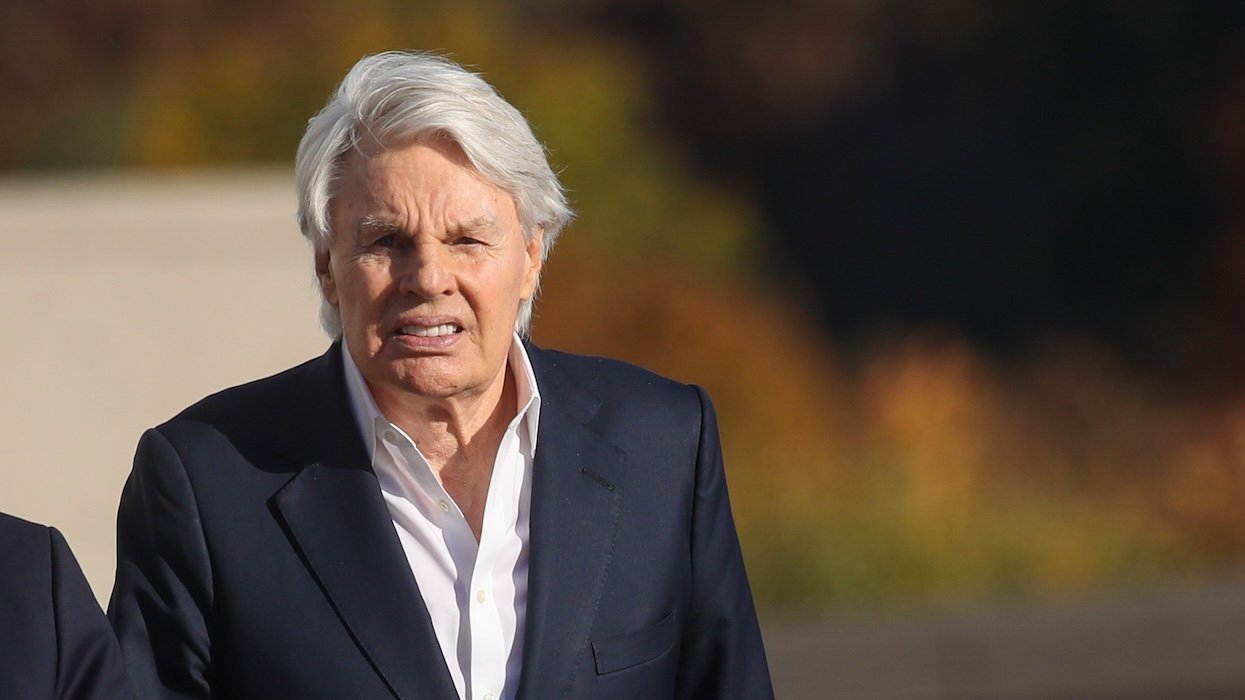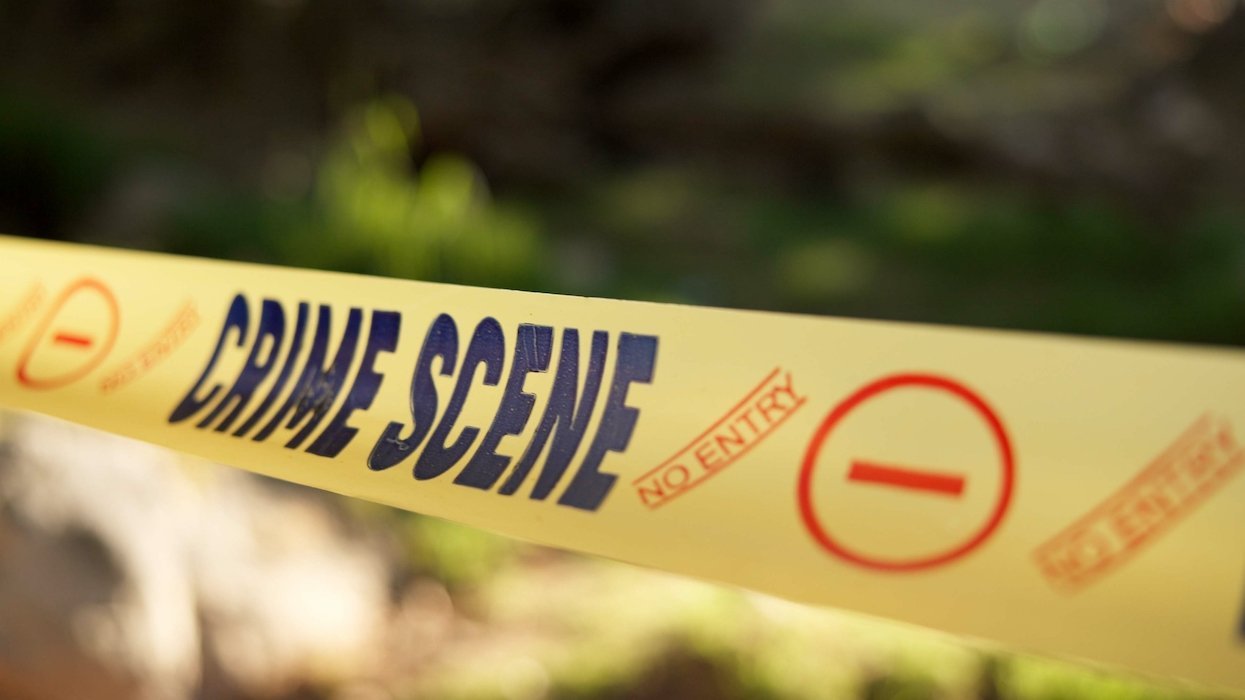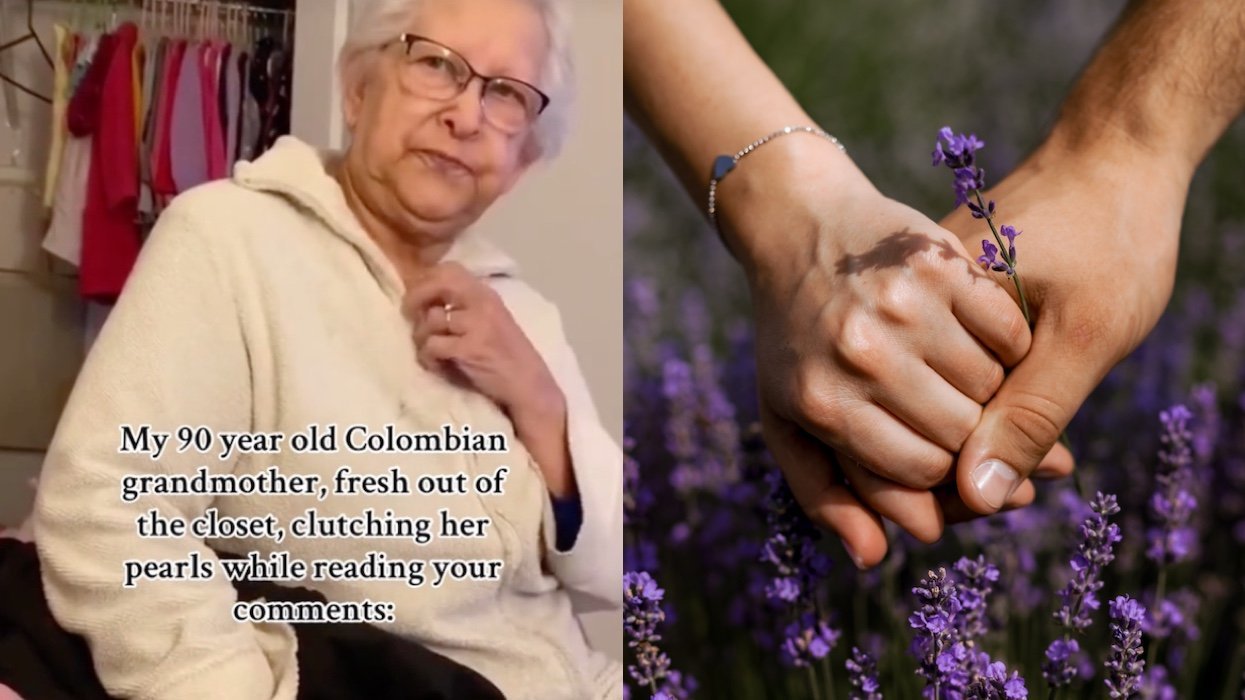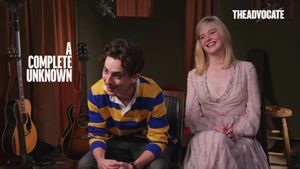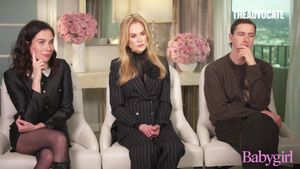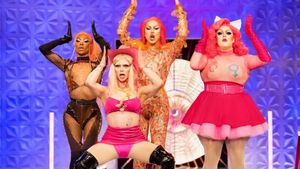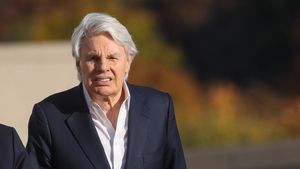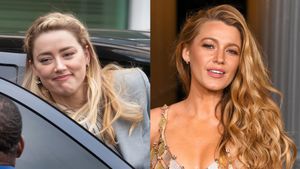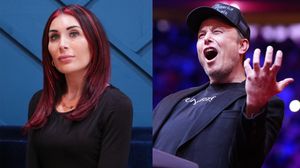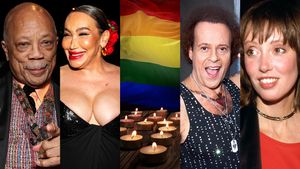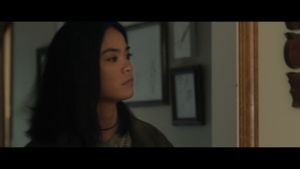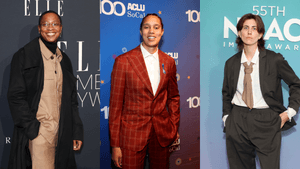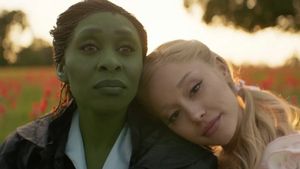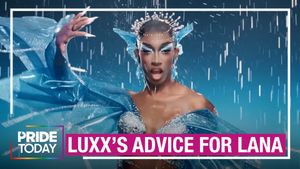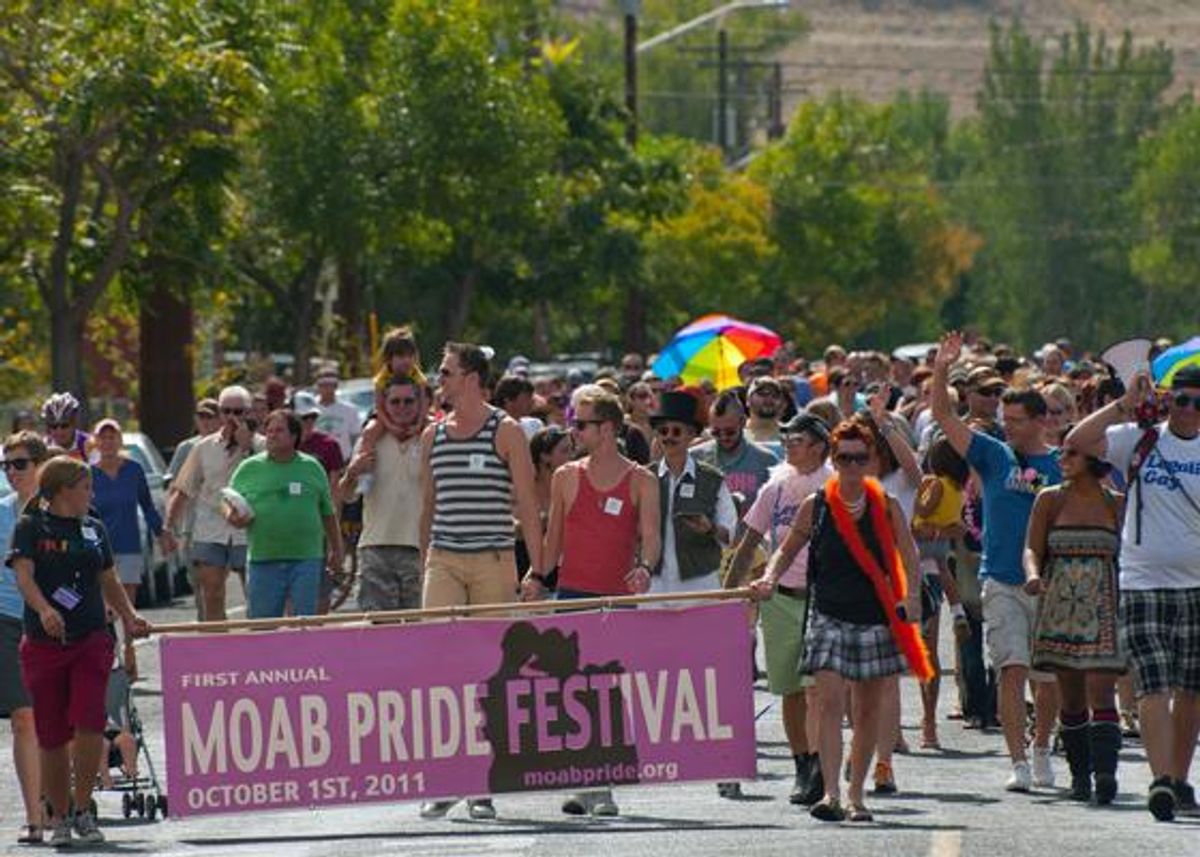
CONTACTStaffCAREER OPPORTUNITIESADVERTISE WITH USPRIVACY POLICYPRIVACY PREFERENCESTERMS OF USELEGAL NOTICE
© 2024 Pride Publishing Inc.
All Rights reserved
All Rights reserved
By continuing to use our site, you agree to our Private Policy and Terms of Use.
After Amy Stocks and her partner Ali Lingel watched a satiric video from The Onion about a small town throwing a pride festival for its only gay man, she posted the video on her Facebook page with a note asking when her own hometown, Moab, Utah, was going to throw a party for her. The response eventually turned into the city's first ever LGBT Pride parade and festival, an event that attracted a full 10% of its citizens.
For Moab -- a small town nestled between Canyonlands and Arches National Parks, in rural conservative southern Utah -- last month's Pride was more than just a party and a parade. It was a political statement heard far beyond the city's borders, in part because the state's predominant religion -- the Church of Jesus Christ of Latter-day Saints (the official name of the Mormon faith) -- has been in the national spotlight all year and in LGBT crosshairs for several more.
Two GOP presidential candidates -- former Utah governor Jon Huntsman and former Massachusetts governor Mitt Romney -- have put Mormonism in the national conversation, notes Celia Alario, media strategist and founder of PR for People the Planet. And the Mormon Church's role in funding the 2008 campaign for Proposition 8 in California, she said "put the church and the state of Utah smack in the middle of a national debate on issues impacting members of the lesbian, gay, bisexual, transgender, queer, intersex community."
By hosting Pride in Moab, LGBT organizers recognized that their little town could potentially impact the entire state "by raising awareness and encouraging understanding and acceptance of LGBTQI people," said Sallie Hodges, Moab Pride Festival Creative Director. "Having attended many Pride festivals in cities such as London, New York, Los Angeles, and San Francisco, I can't help but feel that this festival is as important if not more so than the bigger metropolitan festivals."
Alario, a Moab resident, agrees: "Perhaps more significant than the massive Pride events that draw tens of thousands to big cities across the nation, the hundreds that attend this inaugural Pride festival in Moab...send a strong message to the nation that many in the state of Utah do, in fact, support diversity."
And indeed it did.
Hodges says the success of the festival really "opened up an awareness within the community that there are LGBTQ people out there. If there was one 15-year-old struggling with their sexuality and feeling isolated then I think that them knowing the festival was happening and that they are not alone means we accomplished what we set out to achieve -- it's one step closer to equality and acceptance."
What was good for the gays was also good for local businesses. Organizers expect next year's number of festival attendees to double, and they're banking on the region's appeal as a tourism destination to help that along. Next year the festivities in Moab will include a gay adventure week -- perhaps the first locale in the country to tie outdoor recreation with LGBT Pride as part of annual festivities, a fitting partnership for a city known as a paradise for outdoor sports such as mountain biking, whitewater rafting, and hiking.
This year, Moab Pride included an Orange party (a fitting redux of the classic gay white party theme and a local nod to Moab's reddish-orange sandstone cliffs) plus a festival, but it kicked off with their "Visibility March," attendance at which surprised even Hodges. "I thought maybe we would get between 30 to 50 people marching. Instead, between 400 to 500 showed up."
Unlike other cities where first time Pride-goers hid behind costumes (Boise, we're talking to you), Hodges says, "I don't think any one of them felt they had to hide behind a mask or costume, although costumes were in abundance. I can't really describe the emotions I felt by being a part of such a life affirming experience. As we marched, people on the sidelines clapped and cheered, there were no jeering or mean spirited expletives. In fact, the community as a whole -- from the police department to City Hall -- have been nothing but incredibly accommodating and very supportive."
That image doesn't jibe with how Utahns have been portrayed in the past.
"Utah in general is a very conservative Mormon state," says Hodges. "And I'm excited by the fact that our festival, through its success will serve as an outreach beacon for other small towns in southern Utah which are not as progressive as Moab. I think that one other aspect of the march and the festival in general that made it so enjoyable was that as organizers we wanted to include everyone and so our invite was addressed to all regardless of age, gender, religious or political affiliation and those were a lot of the people that showed up in support and solidarity."
Having 500 people march in the first Pride parade ever held in a town of less than 5,000 people (that's a full 10%) is telling, and not too shabby for an event that started almost as a lark.
"The response Amy got from her posting, rather than being humorous, was more in line with 'what a great idea' and that was how the festival was spawned," says Hodges who helped organize the festival and garnered community support -- from groups including Utah Pride, HRC, ACLU, Planned Parenthood, Equality Utah, Utah Film Center and The Community Foundation of Utah, and Q Salt Lake -- along with Stocks, Lingel, and Helene Rohr. "I think the actual impetus for the festival was quite simply, It's about time!"
deliciousdiane
From our Sponsors
Most Popular
31 Period Films of Lesbians and Bi Women in Love That Will Take You Back
December 09 2024 1:00 PM
18 of the most batsh*t things N.C. Republican governor candidate Mark Robinson has said
October 30 2024 11:06 AM
True
After 20 years, and after tonight, Obama will no longer be the Democrats' top star
August 20 2024 12:28 PM
Trump ally Laura Loomer goes after Lindsey Graham: ‘We all know you’re gay’
September 13 2024 2:28 PM
Melania Trump cashed six-figure check to speak to gay Republicans at Mar-a-Lago
August 16 2024 5:57 PM
Latest Stories
Don't be 'weak & gay': Republican announces congressional run with controversial video
December 27 2024 3:51 PM
'A Complete Unknown's Timothée Chalamet, Monica Barbaro on music, gender & protest
December 27 2024 2:57 PM
Gender studies pioneer Judith Butler: Trans women won't erase cis women
December 27 2024 1:01 PM
Kyrsten Sinema defends filibuster in farewell address to Senate
December 26 2024 7:48 PM
Queer Latina-owned lemonade shop in San Antonio gets a business-saving grant from HRC
December 26 2024 5:22 PM
Abercrombie & Fitch’s former CEO Mike Jeffries has dementia, his lawyers say
December 26 2024 3:03 PM
Georgia couple sentenced to 100 years in prison for sexual abuse of adopted kids
December 26 2024 2:37 PM
New York City man bleeds out in his husband's arms after fatal stabbing
December 26 2024 12:49 PM
TikTok is obsessed with this 90-year-old who just came out after 63-year lavender marriage
December 25 2024 10:51 AM
The 25 best queer films of the century so far
December 25 2024 10:48 AM
2024's best (and hottest) queer art & photography
December 25 2024 10:46 AM
Extensive cover-up effort revealed in L.A. County deputy's beating of trans man
December 24 2024 4:51 PM
Babygirl's Nicole Kidman, Halina Reijn on women, sex, and power
December 24 2024 4:19 PM
Transgender youth endangered as anti-trans defense budget is signed into law by Biden
December 24 2024 2:38 PM
President Joe Biden signs into law first federal anti-LGBTQ+ bill in decades
December 24 2024 10:27 AM
What about Amber Heard? This Blake Lively 'smear campaign' sure feels familiar
December 24 2024 7:45 AM
Trending stories
Recommended Stories for You

Diane Anderson-Minshall
Diane Anderson-Minshall is the CEO of Pride Media, and editorial director of The Advocate, Out, and Plus magazine. She's the winner of numerous awards from GLAAD, the NLGJA, WPA, and was named to Folio's Top Women in Media list. She and her co-pilot of 30 years, transgender journalist Jacob Anderson-Minshall penned several books including Queerly Beloved: A Love Across Genders.
Diane Anderson-Minshall is the CEO of Pride Media, and editorial director of The Advocate, Out, and Plus magazine. She's the winner of numerous awards from GLAAD, the NLGJA, WPA, and was named to Folio's Top Women in Media list. She and her co-pilot of 30 years, transgender journalist Jacob Anderson-Minshall penned several books including Queerly Beloved: A Love Across Genders.




















